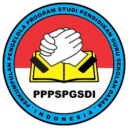Comparative Study of Water Based on Microsoft Mathematics With Traditional Learning
DOI:
https://doi.org/10.35568/naturalistic.v8i1.4092Keywords:
AIR Learning Based on Microsoft Mathematics, Traditional Learning, Mathematics Learning OutcomesAbstract
The study aimed to see differences in learning outcomes in mathematics using AIR learning based on Microsoft Mathematics and traditional learning in class XI MAS Pondok Pesantren Modern K.H. Ahmad Dahlan Sipirok. This type of quantitative research uses test instruments. The sample consisted of 2 classes, namely the experimental class (AIR learning based on Microsoft Mathematics) and the control class (Traditional learning). Analysis of the data used is a prerequisite test using the average similarity test and hypothesis testing by calculating the average. The research hypotheses: 1) Knowing the increase in students' mathematics learning outcomes by using Water-Based Microsoft Mathematics learning and Traditional learning, 2) Knowing the differences in increasing mathematics learning outcomes between Water-Based Microsoft Mathematics learning and Traditional learning. After the research was carried out, the results showed that there were differences between learning Water-Based Microsoft Mathematics and Traditional learning. The average test of students' mathematics learning outcomes through AIR learning based on Microsoft Mathematics was obtained by 76.66% of the 30 students who took the test or met the minimum completeness criteria (KKM), namely 75%. And for the results of student activities to obtain an overall percentage value of 81%, and for the results of student activities to obtain an overall percentage value of 80%.
Meanwhile, the average test score for students' mathematics learning outcomes through traditional learning reached 84.6% of the 25 students who took the test or met the minimum completeness criteria (KKM), namely 75%. And for the results of student activities to obtain an overall percentage value of 80%. Both learning are equally good to use in the learning learning process. However, it can be seen from the results obtained that traditional learning has higher results compared to AIR learning based on Microsoft Mathematics. One of the obstacles that causes this to happen is the lack of an internet network and frequent power outages. And for today's students, they miss the process of learning while playing. And they get it during the traditional learning process (bombing games)—Target Outcome of Scientific Publication in Sinta National Journal with ISSN.
Downloads
References
A. W. Kartika and N. Harjono,"Comparison of Problem Based Learning and Discovery Learning Models in View of Increasing Elementary School Students' Mathematical Problem Solving Abilities," Wahana Sekol. Basics, 2020, doi: 10.17977/um035v28i22020p042.
I. U. Albab, Y. Hartono, and D. Darmawijoyo, "STUDENT LEARNING PROGRESS IN TRANSFORMATION GEOMETRY USING GEOMETRIC REFLECTION ACTIVITIES," J. Cakrawala Educator., vol. 3, no. 3, 2014, doi: 10.21831/cp.v3i3.2378.
M. A. Sormin and N., "DEVELOPMENT OF A PROBLEM-BASED MATHEMATICS MODULE TO IMPROVE STUDENTS' MATHEMATICAL PROBLEM SOLVING ABILITIES," EXAKTA J. Researcher. and Mathematics and Natural Sciences Learning, 2019, doi: 10.31604/eksakta.v4i1.41-48.S. D. Handayani, A. Solihah, and E. D. Sirait, "Using Microsoft Mathematics Applications in Mathematics Learning," J. Abdiku, 2019.
S. Hartati, Z. Zulkardi, and Y. Hartono, "Learning Mirroring Using the Bom-Boman Game in Class VII," J. Rev. Learning Mat., 2018, doi: 10.15642/jrpm.2018.3.1.49-61.
Downloads
Published
How to Cite
Issue
Section
License
Copyright (c) 2023 Naturalistic: Jurnal Kajian dan Penelitian Pendidikan dan Pembelajaran

This work is licensed under a Creative Commons Attribution-NonCommercial-NoDerivatives 4.0 International License.
Copyright of Journal Naturalistic : Jurnal Kajian Penelitian Pendidikan dan Pembelajaran (e-ISSN:2548-8589, p-ISSN:2528-2921).
Open Access Policy
This journal provides immediate open access to its content on the principle that making research freely available to the public supports a greater global exchange of knowledge.
This journal is open access journal which means that all content is freely available without charge to users or / institution. Users are allowed to read, download, copy, distribute, print, search, or link to full text articles in this journal without asking prior permission from the publisher or author. This is in accordance with Budapest Open Access Initiative.






